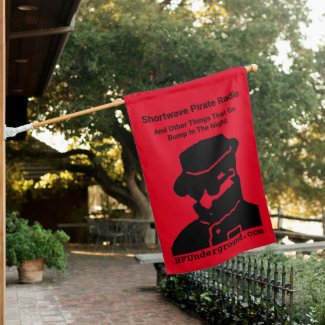No issue is more pressing to SBE than the noise interference faced by AM stations. “To us, it’s all related to ambient RF noise,” Imlay said. Not only are radio frequency or RF-emitting devices filling homes and offices with noise clutter, but big box retailers sell industrial strength technology for home use. “The problem is one of those devices is going to cause noise in a city block and anybody who would like to listen to the AM band at home isn’t going to be able to,” Imlay said. With little enforcement by the FCC against unlicensed Part 15 devices that exceed RF limits, engineers say it paints a dire situation for radio going forward. “They’re killing the AM broadcast band,” Imlay said. “And as long as those kinds of things are happening, the AM broadcast band is doomed.”
Y-E-S !
“We believe that C-Quam AM stereo and wide full bandwidth AM channels—which means an effort to increase bandwidth receivers to significantly reduce the noise floor—is the way to true AM revitalization,” King said. He points out a number of AMs have been operating in stereo for decades and many of the transmitters already owned by stations already include the AM stereo card that could be turned on while other non-stereo capable transmitters could easily and quickly be modified.
Oh heck yeah!
We have two C-QUAM stations in the area and one just switched from IBOC a few months ago. The other has been on C-QUAM since they came on the air about 6 years ago. I welcome many more.
One of the biggest hurdles for broadcasters would be convincing receiver manufacturers to embrace AM stereo.
Some transmitters have a little button that selects mode. Even if they don't send a stereo feed to the tx, the wider bandwidth certainly helps.
Pai doesn’t believe the Commission has such ability. “Our lawyers have gone over this for many years and they’ve said we don’t have the authority when it comes to mandates on the receiver side,” he told WRDN.
Oh? What about FCC certification and requirements therein? How did they enforce the AM expanded band? (Unless I'm missing some context on this).
“I think the answer clearly is no, it isn’t one bit better,” SBE’s Imlay said. “In fact, it’s probably worse; with the gutting of the FCC field offices there is nobody out there policing interference.” In the meantime, problems continue. “I think the AM band in terms of the listenability is deteriorating at a fairly rapid rate,” Imlay added.
Yup the cheap electronics continue to pollute unabated. This is the #1 thing that needs to be fixed. Then the broadcasters should broadcast ~19 kHz (just under 20 kHZ, to protect the carriers on either side), and finally turn off IBOC.
While the technical problems are being worked on, broadcasters need to fix their programming. The FCC can not and should not have a say in that. That's 100% broadcaster's responsibility.



